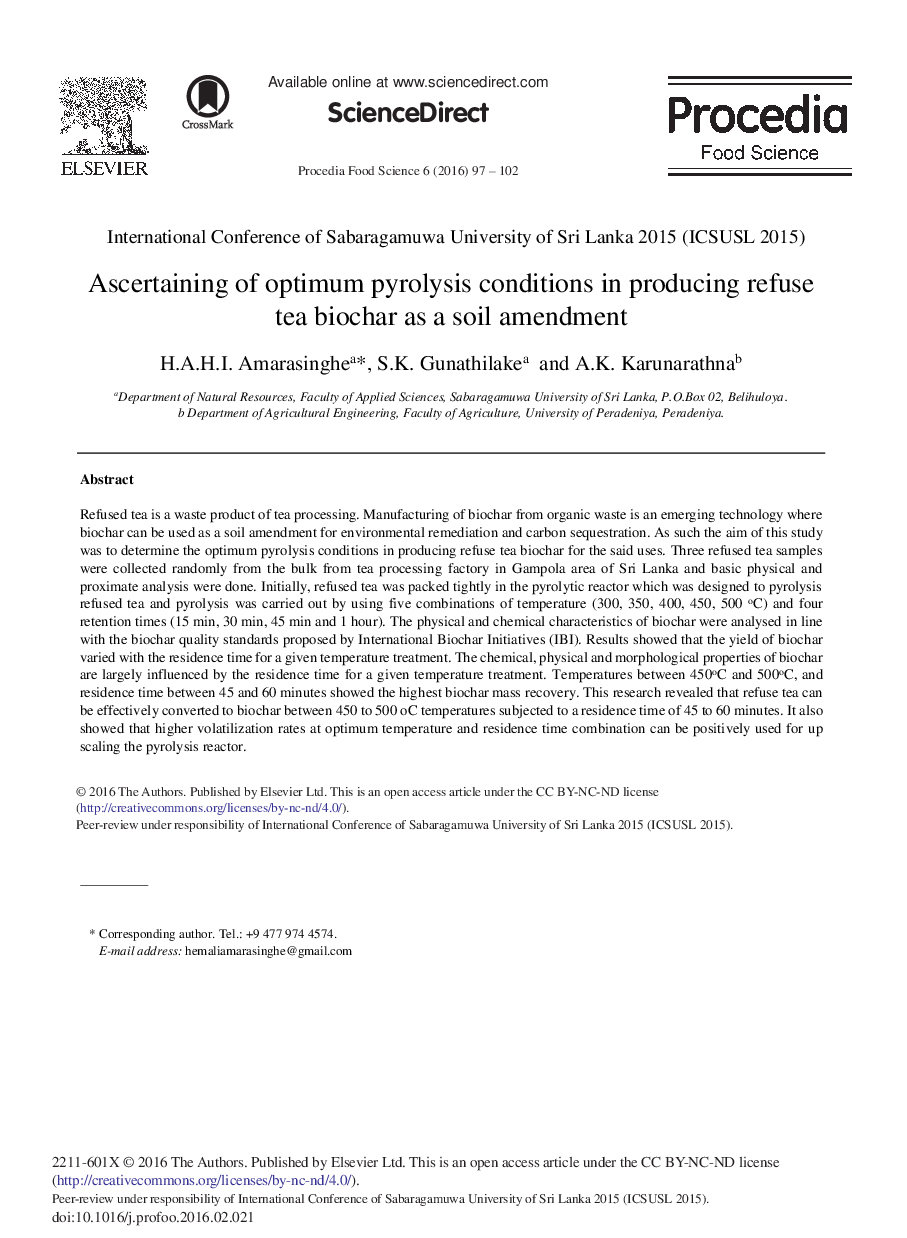| Article ID | Journal | Published Year | Pages | File Type |
|---|---|---|---|---|
| 1266185 | Procedia Food Science | 2016 | 6 Pages |
Refused tea is a waste product of tea processing. Manufacturing of biochar from organic waste is an emerging technology where biochar can be used as a soil amendment for environmental remediation and carbon sequestration. As such the aim of this study was to determine the optimum pyrolysis conditions in producing refuse tea biochar for the said uses. Three refused tea samples were collected randomly from the bulk from tea processing factory in Gampola area of Sri Lanka and basic physical and proximate analysis were done. Initially, refused tea was packed tightly in the pyrolytic reactor which was designed to pyrolysis refused tea and pyrolysis was carried out by using five combinations of temperature (300, 350, 400, 450, 500 oC) and four retention times (15 min, 30 min, 45 min and 1 hour). The physical and chemical characteristics of biochar were analysed in line with the biochar quality standards proposed by International Biochar Initiatives (IBI). Results showed that the yield of biochar varied with the residence time for a given temperature treatment. The chemical, physical and morphological properties of biochar are largely influenced by the residence time for a given temperature treatment. Temperatures between 450oC and 500oC, and residence time between 45 and 60 minutes showed the highest biochar mass recovery. This research revealed that refuse tea can be effectively converted to biochar between 450 to 500 oC temperatures subjected to a residence time of 45 to 60 minutes. It also showed that higher volatilization rates at optimum temperature and residence time combination can be positively used for up scaling the pyrolysis reactor.
